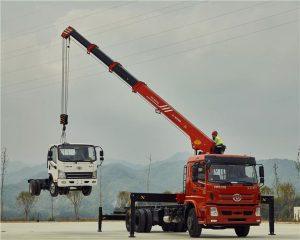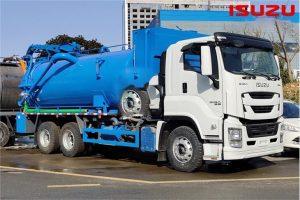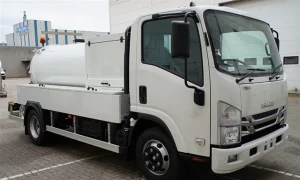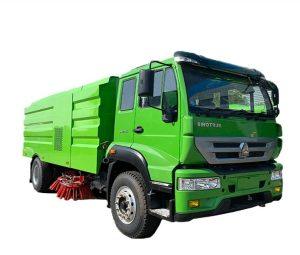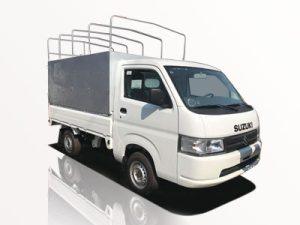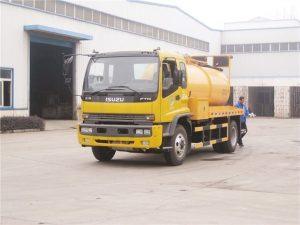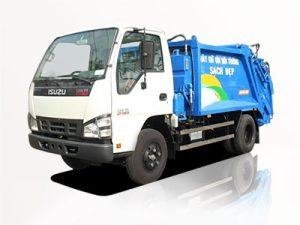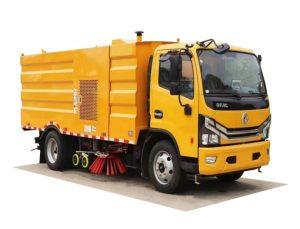Monday to Saturday - 8:00 -17:30
Understanding Dump Truck Construction: A Comprehensive Guide
Dump trucks play a vital role in construction, utility projects, landscaping, and various other applications. Their ability to transport heavy loads efficiently makes them indispensable in the construction industry. In this article, we will explore dump truck construction in detail, including types, components, maintenance, and more. Whether you are a contractor, project manager, or simply interested in construction, this guide provides valuable insights.
What is a Dump Truck?
A dump truck is a heavy-duty vehicle designed to transport bulk materials, such as sand, gravel, or demolition waste. The defining feature of a dump truck is its ability to unload its contents quickly by tipping its bed, allowing for ease of material delivery on construction sites.
Types of Dump Trucks
Dump trucks come in various types, each designed for specific purposes. Understanding these types helps businesses choose the right vehicle for their needs.
1. Standard Dump Truck
The standard dump truck is the most common type, characterized by an open-top bed that tilts to unload materials. It is suitable for general construction tasks.
2. Articulated Dump Truck
Articulated dump trucks have a joint between the cab and the dump box, providing better maneuverability on rough terrain. They are ideal for large construction sites.
3. Transfer Dump Truck
Transfer dump trucks consist of a standard dump truck with a separate trailer, allowing them to carry more materials. This is beneficial for long-distance hauling where larger loads are necessary.
4. Super Dump Truck
The super dump truck is an upgraded version of the standard truck with an additional axle, allowing for increased hauling capacity while complying with weight restrictions.
Key Components of Dump Trucks
Understanding the key components of a dump truck is crucial for proper operation and maintenance.
1. Truck Frame
The truck frame is the backbone of a dump truck, designed to support heavy loads. It must be sturdy and durable to withstand the stresses of hauling materials.
2. Dump Bed
The dump bed is the section that holds the material. Typically made from high-strength steel or aluminum, it can be raised to an angle for unloading.
3. Hydraulic System
The hydraulic system enables the dump bed to lift and lower. It consists of hydraulic cylinders, hoses, and pumps. Maintenance of this system is critical for reliable operation.
4. Tires
Dumpt trucks use heavy-duty tires designed for rugged terrains. Proper tire maintenance ensures safety and efficiency.
Dump Truck Construction Process
Step 1: Designing the Dump Truck
The construction of a dump truck begins with designing the chassis and dump bed based on the intended use, load capacity, and safety regulations.
Step 2: Material Selection
High-quality materials, including steel and aluminum, are selected for the truck frame and dump bed to ensure strength and durability.
Step 3: Assembly
The assembly involves combining the truck frame, dump bed, hydraulic system, and other components. This typically occurs in a factory setting under strict quality control standards.
Step 4: Testing
After assembly, the dump truck undergoes rigorous testing to ensure safety features function correctly, and it meets performance standards.
Maintenance Tips for Dump Trucks
Regular maintenance of dump trucks is essential for longevity and efficiency. Here are some practical tips:
1. Daily Inspections
Conduct daily inspections to check fluid levels, tire pressure, and ensure all components function properly.
2. Regular Oil Changes
Change the engine oil and filters according to the manufacturer’s recommendations to keep the engine running smoothly.
3. Hydraulic System Maintenance
Inspect hydraulic fluid levels and check for leaks regularly to prevent failures while in operation.
4. Tire Care
Maintain proper tire pressure and inspect for wear or damage. Rotating tires can enhance longevity.
5. Keep it Clean
Regularly wash the exterior and undercarriage to prevent rust and corrosion, ensuring long-term durability.
Safety Guidelines for Operating Dump Trucks
Safety is paramount in construction. Here are essential safety guidelines to follow:
1. Proper Training
All operators should undergo proper training to handle dump trucks competently and safely.
2. Use Seatbelts
Always wear a seatbelt when operating a dump truck. This is a critical safety measure in case of accidents.
3. Maintain Clear Communication
Use signals or radios to communicate with ground personnel during loading and unloading to avoid accidents.
4. Observing Load Limits
Never exceed the rated capacity of the dump truck. Overloading can lead to mechanical failures and accidents.
Cost Considerations for Dump Trucks
Purchasing and operating a dump truck involves various costs that should be taken into account.
1. Initial Purchase Price
The cost of dump trucks can vary greatly depending on the model and specifications, generally ranging from $30,000 to $200,000.
2. Fuel Costs
Fuel efficiency varies by vehicle; therefore, understanding fuel consumption is crucial for budgeting operational costs.
3. Maintenance Expenses
Set aside a budget for regular maintenance to ensure the longevity of the dump truck, including parts replacements and service fees.
4. Insurance Costs
Insurance is necessary to protect your investment and is another notable expense when owning a dump truck.
The Future of Dump Truck Construction
As technology advances, dump truck construction is evolving. Below are trends shaping the future of the industry.
1. Electric Dump Trucks
With increasing environmental concerns, electric dump trucks are being developed for greener operations, promising reduced emissions and fuel costs.
2. Autonomous Driving
Autonomous dump trucks are being tested for use in controlled environments. This technology may enhance safety and efficiency in construction.
3. Improved Materials
Advancements in materials science are leading to lighter, stronger, and more durable components, improving efficiency and payload capacities.
Frequently Asked Questions (FAQs)
1. What types of materials can a dump truck carry?
Dump trucks can carry a variety of materials, including dirt, sand, gravel, asphalt, and demolition debris.
2. How often should I perform maintenance on my dump truck?
Regular maintenance should occur daily, with more comprehensive checks and oil changes based on the manufacturer’s recommendations.
3. Can I operate a dump truck with a regular driver’s license?
Operating a dump truck typically requires a commercial driver’s license (CDL), depending on the truck’s weight and regulations in your region.
4. What is the average lifespan of a dump truck?
The average lifespan of a dump truck can range from 10 to 15 years, depending on usage, maintenance practices, and the quality of initial construction.
5. How do I choose the right dump truck for my project?
Consider factors such as load capacity, terrain, and specific project needs when selecting a dump truck for your construction project.
6. Are dump trucks environmentally friendly?
While traditional dump trucks contribute to emissions, advances in electric and hybrid technology are making them more environmentally friendly.


